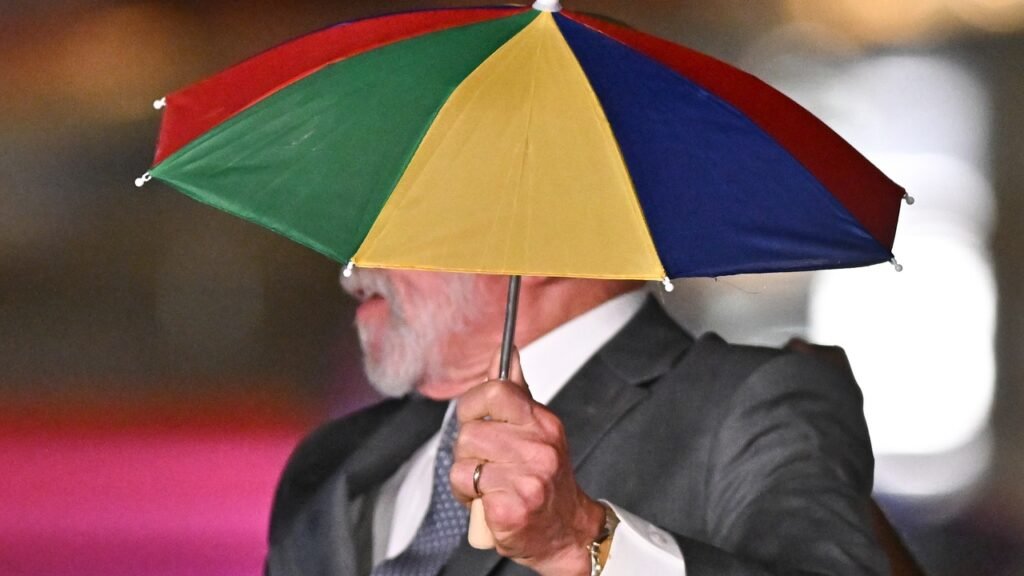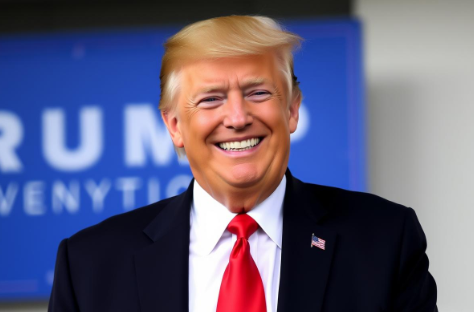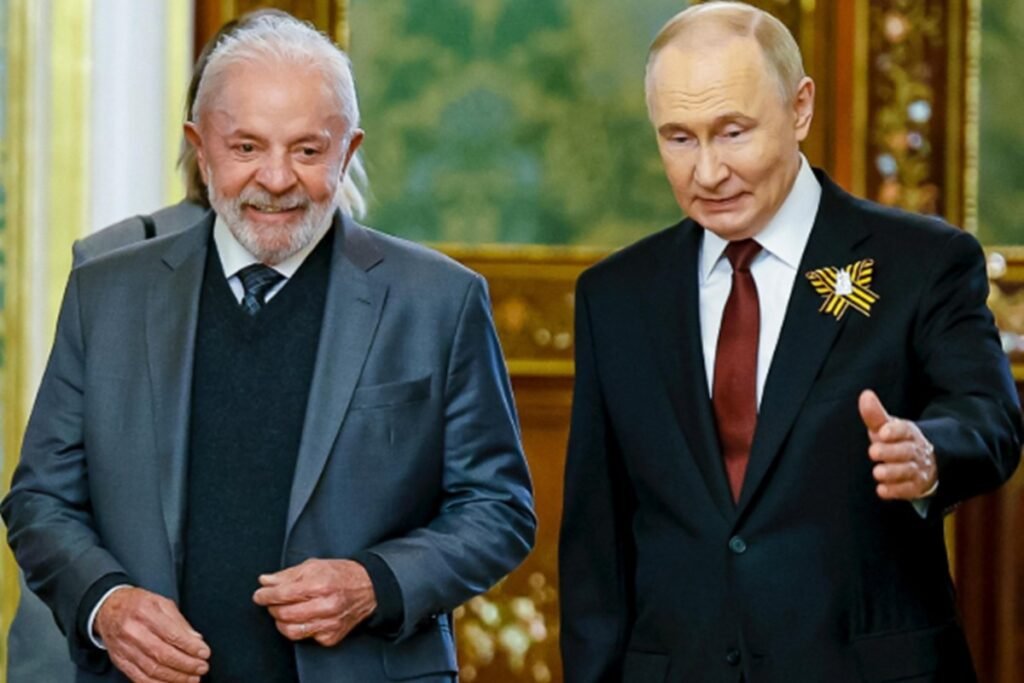In a twist that marks a new chapter in the trade tensions between the two countries, Luiz Inácio Lula da Silva has taken a strong stance against Donald Trump’s protectionist measures. ‘I have no reason to call President Trump,’ he declared, rejecting the idea of bowing down to pressure. Instead, he intends to work with the BRICS nations to find a solution to the escalating tariff crisis.
The Brazilian president’s decision to not engage directly with the U.S. comes in response to the recent 50% tariff hike imposed by the Trump administration. Lula da Silva made it clear that he refuses to subject himself or his country to what he sees as humiliating demands. By choosing to seek a resolution alongside other BRICS members, he aims to address the issue from a position of strength and solidarity.
Speaking to reporters, Lula da Silva emphasized his commitment to upholding Brazil’s interests and sovereignty in the face of external pressures. He underscored the importance of standing firm against unfair trade practices and protecting the country’s economy from arbitrary impositions. By taking a principled stance against the tariff increase, he is signaling his unwillingness to compromise on Brazil’s economic wellbeing.
Furthermore, Lula da Silva announced his intention to escalate the matter by bringing it to the World Trade Organization (WTO) for arbitration. By pursuing a legal avenue to address the tariff dispute, he seeks to demonstrate Brazil’s adherence to international trade rules and its commitment to finding a just solution. This strategic move showcases his determination to navigate the crisis in a diplomatic and rules-based manner.
As tensions between Brazil and the U.S. continue to simmer, Lula da Silva’s refusal to engage in what he perceives as a demeaning negotiation process with Trump sends a clear message of defiance and autonomy. By choosing to pursue a multilateral approach through BRICS collaboration and WTO involvement, he is positioning Brazil as a principled player on the global trade stage. This episode underscores the complexities of international trade relations and the importance of assertive leadership in defending national interests.




